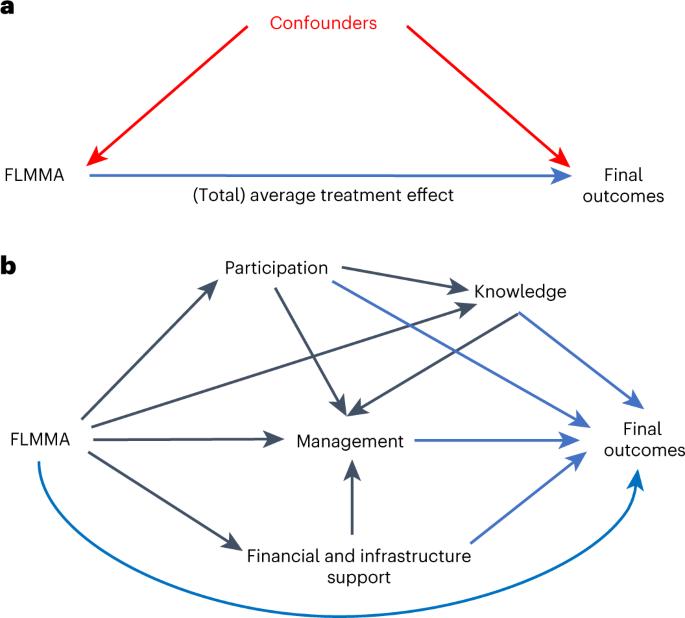国家一级对以社区为基础的海洋管理举措的评价
IF 25.7
1区 环境科学与生态学
Q1 ENVIRONMENTAL SCIENCES
引用次数: 1
摘要
以社区为基础的保护和自然资源管理方法被认为是实现全球保护目标的关键。尽管这种方法被广泛采用,但人们对成功和不成功的社区实践了解甚少,这是因为在设计稳健的评估以估计影响和分析影响的潜在机制方面存在挑战。在此,我们将介绍斐济 "地方管理海域 "网络的国家级评估结果,这是一项基于海洋社区的管理倡议。通过使用匹配方法选取的 146 个村庄的数据,我们表明,参与斐济当地管理的海洋区域网络可改善产生保护成果的所有假设机制(参与、知识、管理和财政支持)。然而,这些机制几乎没有转化为社会成果,也没有对村庄渔场的生态健康产生任何影响。我们的研究结果表明,实践者可能需要仔细评估和调整他们期望从社区项目中产生影响的机制,以改善对人类和自然的影响。了解社区项目如何发挥作用对于有效的环境管理至关重要,但对这些工作的因果评估却很少见。本研究对斐济当地管理的海洋区域网络进行了全国范围的评估,并考察了预期机制是否能带来保护成果。本文章由计算机程序翻译,如有差异,请以英文原文为准。

National-level evaluation of a community-based marine management initiative
Community-based approaches to conservation and natural resource management are considered essential to meeting global conservation targets. Despite widespread adoption, there is little understanding about successful and unsuccessful community-based practices because of the challenges of designing robust evaluations to estimate impacts and analyse the underlying mechanisms to impact. Here we present findings from a national scale evaluation of the ‘locally managed marine areas’ network in Fiji, a marine community-based management initiative. Using data from 146 villages selected using matching methods, we show that engagement in the Fijian locally managed marine areas network leads to improvements in all mechanisms hypothesized to generate conservation outcomes (participation, knowledge, management and financial support). Yet these mechanisms translate to few social outcomes and have no effect on the perceived ecological health of a village’s fishing grounds. Our findings show that practitioners may need to carefully evaluate and adapt the mechanisms that they expect will generate impact from community-based projects to improve outcomes for people and the rest of nature. Understanding how community-based initiatives work is crucial for effective environmental management, but causal evaluations of these efforts are rare. This study presents a national-scale evaluation of a locally managed network of marine areas in Fiji and examines whether the expected mechanisms deliver conservation outcomes.
求助全文
通过发布文献求助,成功后即可免费获取论文全文。
去求助
来源期刊

Nature Sustainability
Energy-Renewable Energy, Sustainability and the Environment
CiteScore
41.90
自引率
1.10%
发文量
159
期刊介绍:
Nature Sustainability aims to facilitate cross-disciplinary dialogues and bring together research fields that contribute to understanding how we organize our lives in a finite world and the impacts of our actions.
Nature Sustainability will not only publish fundamental research but also significant investigations into policies and solutions for ensuring human well-being now and in the future.Its ultimate goal is to address the greatest challenges of our time.
 求助内容:
求助内容: 应助结果提醒方式:
应助结果提醒方式:


